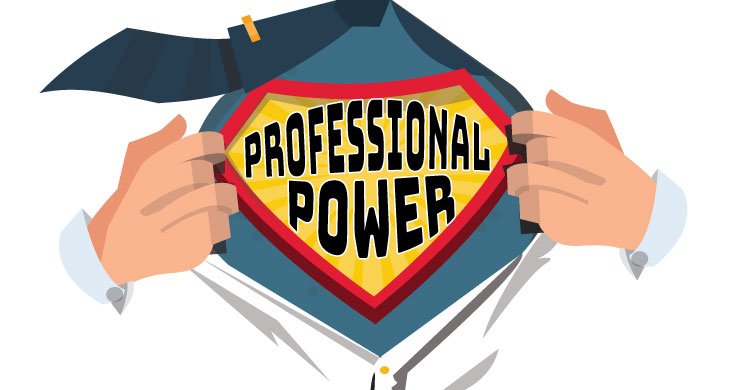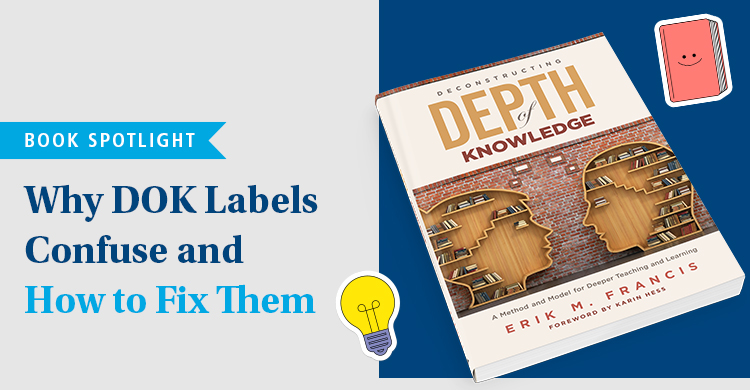There are many rewards to operating as a Professional Learning Community, but one remarkable feature is found in the need for and value of teacher empowerment as the pathway to school improvement from the classroom level. In PLCs, teacher leadership is paramount to the school’s ultimate success. But what does leadership look like in a collaborative team of equal peers?
Positional titles (grade level leaders, department chairs, mentors, coaches, instructional resource teachers, reading or math specialists, to name a few), while impressive, bear no authority in the traditional sense of ‘power over,’ leaving teacher leaders to ponder how they can impact positive change when they share the same degree of authority as those they are charged to lead. Fortunately, it doesn’t take a positional title to lead change. All teachers have access to the two most influential forms of power: professional power and moral authority (Erkens and Twadell, 2012).
Positional power has limitations. Leaders with titles can demand or require things of others, but the scope of their impact is proportional to the quality of their efforts to capture the heart and passion of their followers. Even titled leaders (e.g. principals, directors, superintendents, etc.) require professional power and moral authority if they are to create meaningful changes. Professional power and moral authority are really the only ways that teacher leaders will be able to influence their teammates, or even their own leaders, in positive and significant ways.
When it comes to working with or influencing one’s peers, professional power should not be assumed because it is not simply granted. It does not come with donning a leadership title and it does not come with surviving many years of experience in the classroom or the boardroom. Professional power must be earned in the eyes of one’s colleagues and followers.
Professional power is derived from consistently recognizable prowess.
Educators with professional power have invested deeply in the study of their craft. Their pedagogical expertise is masterful and fluid. They can analyze their impact, improvise with their instructional or leadership strategies, explore possibilities without getting sidetracked, challenge all of their learners, and ultimately improve their results.
They are passionate, committed, proactive, positive, and successful. In both large and small moments, they are the models of the very beliefs and behaviors they expect in others. They are authentic and consistent.
Professional power arises from insatiable, visible learning.
Educators with professional power have deep content knowledge, yet they openly and persistently strive to deepen it. Their colleagues view them as voracious learners. They read, interview, observe, participate, practice, seek feedback, double check, and revise while honing their craft. They are discerning. They explore all sides to an issue, but with positive presuppositions.
They adopt a learning posture in their staff meetings, in their formal and informal learning experiences, and most importantly, in their own classrooms. Rather than seeking what’s wrong, they search for what’s right, what’s replicable, and what’s working to cause the appropriate responses. If a research-based best practice doesn’t work in their classroom, they strive to fix it by identifying the variables that might be hindering their results and they trying a new approach. They document their efforts, creating their own local research with evidence. It is always clear that they engaged in inquiry before attempting advocacy when they are making recommendations for team- or school-based improvement.
Professional power is cloaked in humility and grace.
Educators with professional power accept that the more they know, the more they know they don’t know. So, they are brave without bravado, prudent devoid of prudishness, and competent shy of conceit. They are happy to share and eager to try new things. Educators with professional power are easy to follow. Each of us has the potential and the obligation to develop our professional power. We owe it to our learners.
Masterful leaders also harness the power of the moral imperative to lead change. In other words, they can more readily convince their colleagues to alter or improve something when their recommendations are firmly grounded in doing the right work for the right reasons – the obligation to address a greater purpose.
Educators access moral authority through the language of vision, mission, values, and goals.
The 4 pillars of quality organizational development – vision, mission, values, and goals [V/M/V/G] – are operationalized when they are activated as the language of moral authority across the entire organization. The exact language of the V/M/V/G statements that become common place are not commonly understood when they serve solely as marketing features reduced to expressions printed on mugs and letter head; rather, they are commonly understood and integrated, when leaders in the organization reference them as the barometer for all decisions (Will this act help us actualize our vision? Would attending this event enhance our capacity to live our mission? Will purchasing those resources help us accomplish our goals?). It’s hard to disagree with an educational leader who implores followers to base all decisions on what’s best for students and learning.
Educators who access moral authority hold others accountable to the higher purpose.
Educators who develop their moral authority view their work as a calling as opposed to a job or a career. They are in education because of their passion for guaranteeing all students are successful, and they will do whatever it takes, including sometimes fighting the very systems or beliefs that prohibit the right work from happening. They are agents of hope for all stakeholder groups, especially their peers, when they challenge the status quo to remain true to a greater purpose. They challenge the silent majority to take action. They confront the unengaged, the non-believers, or the antagonists who may have lost their focus on the greater purpose or forgotten how to lead as servants to the moral imperative.
In a professional learning community, everyone must focus on developing their leadership capacity. Imagine the unstoppable impact of a committed staff focused on continually refining their professional power and harnessing their moral authority to lead change. Each of us holds the power to make a difference.
[author_bio id=”68″]






